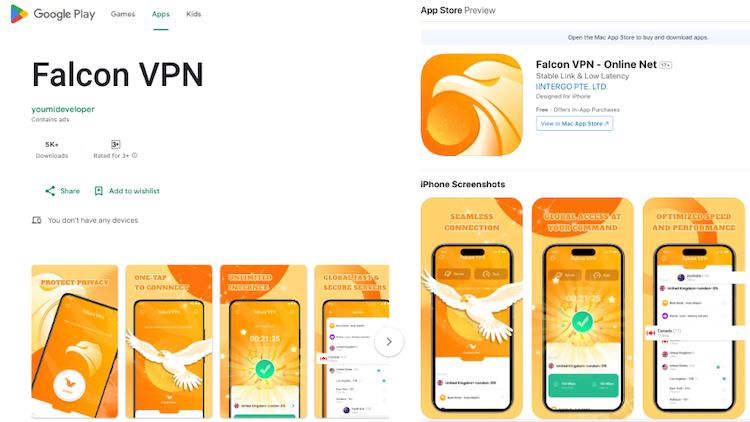The dark web is a realm of the internet that sparks both intrigue and caution. To get started, you’ll first need to understand what the dark web entails and how to safely access it. Once in, you’ll realize that traditional search engines like Google won’t cut it. To truly explore, you need the best dark web search engines tailored for this hidden network. Below, we’ll guide you through everything you need, from essential safety tips to the best tools for your dark web adventure.

What is the Dark Web?
The dark web is the part of the internet that isn’t indexed by mainstream search engines. It requires special software like the Tor Browser (The Onion Router), which anonymizes users by routing their data through multiple encrypted nodes.
While the dark web serves as a haven for privacy, used by journalists and activists to communicate securely, it is also notorious for illegal activities, ranging from black markets to data breaches.
Websites on the dark web typically use the “.onion” domain suffix and are accessible exclusively via Tor. These addresses are often unwieldy and lack user-friendly names, making navigation challenging without specialized search engines like Torch Engine Search or Tor66.
What is a Dark Web Search Engine?
Search engines on the dark web are uniquely designed to index websites operating on the Tor network. Unlike traditional search engines, these tools help users locate “.onion” sites, enabling secure browsing in this hidden sector of the web.
Key Examples of Dark Web Search Engines
-
Torch Engine Search: One of the oldest and most reliable, indexing millions of onion sites.
-
Tor66: User-friendly and ideal for beginners.
-
Haystack Search Engine: Offers privacy and advanced filtering.
-
Telegram Unfiltered Search Bot: A novel method for content discovery.
-
Deep Web Image Search: Helps locate visual content across onion sites.
The 5 Best Dark Web Search Engines You Should Know About
Looking to venture into the mysterious corners of the internet? The dark web offers a wealth of resources, but navigating it without the right tools can be daunting. To help you safely explore, here are the 5 best dark web search engines to use.
1. Torch Engine Search
Torch is a classic choice and often the first name that comes to mind when discussing dark web search engines. It’s one of the oldest and most reliable options, indexing a vast library of onion sites daily. With its simple and familiar interface reminiscent of Google, Torch ensures accessibility for beginners and experienced users alike.
Pros:
-
Extensive search results covering a wide range of onion sites.
-
Fast loading speeds and user-friendly navigation.
Cons:
-
Websites aren’t filtered, increasing the risk of stumbling upon malicious content.
Still, its vast database makes Torch a standout option for exploring the dark web.
2. Ahmia
Ahmia is another powerful choice for those seeking a robust dark web search engine. While its primary function is to serve search results, Ahmia goes above and beyond by offering statistics, news, and insights about the Tor network.
Why Ahmia Stands Out:
-
Ethical policies that align with user safety.
-
Provides valuable data about the Tor network.
When exploring sites like Tor66 or using deeper tools such as Falcon VPN, Ahmia proves incredibly useful.
3. DuckDuckGo
You’ve probably heard of DuckDuckGo as a privacy-focused search engine for mainstream browsers—but did you know it’s also the default search engine within the Tor Browser?
DuckDuckGo’s biggest advantage is its strict no-tracking policy, which ensures your activity stays private, whether you're on the surface web or using it for a deep web image search.
Pros:
-
Trusted platform with strong privacy measures.
-
Easy integration with the Tor Browser.
However, DuckDuckGo may not deliver as many dark web search results as specific platforms like Haystack Search Engine.
4. Haystack Search Engine
For anyone aiming to access the broadest range of dark web content, Haystack might be the go-to choice. With over 1.5 billion indexed pages, it boasts what is likely the largest search library on the dark web.
That said, Haystack operates on a freemium model, meaning users must pay for advanced features like ad-free browsing or access to historical versions of websites.
Regardless, Haystack's vast index sets it apart from other best dark web search engines while maintaining user privacy.
5. The Hidden Wiki
While technically more of a directory than a traditional search engine, The Hidden Wiki earns its spot as one of the best dark web search engines for its usability and structure. Offering a categorized directory of links across various topics, it makes navigating the dark web significantly easier for beginners.
Additionally, it filters out many malicious sites, although some shady ones may occasionally slip through.
If you're new to exploring the dark web, The Hidden Wiki is an excellent place to start, even as you use tools like free VPN - Falcon VPN or specialized bots like Telegram Unfiltered Search Bot for enhanced privacy and security.
Comparison Table: Top 5 Dark Web Search Engines
| Search Engine | Type | Indexed Pages | Filters Malicious Content | Notable Feature |
|---|---|---|---|---|
| Torch Engine Search | Search Engine | Millions | ❌ | Fast, broad indexing |
| Ahmia | Search Engine | Hundreds of Thousands | ✅ | Ethical filtering, stats |
| DuckDuckGo | Search Engine | Limited (Tor default) | ✅ | Built into Tor, privacy-first |
| Haystack Search Engine | Search Engine | 1.5+ Billion | ❌ | Largest index, premium options |
| The Hidden Wiki | Directory | N/A | ✅ | Organized onion site categories |
Alternative Options on the Radar
If you're eager to expand your options further, here are some additional dark web search engines to keep an eye on. Just note that some experience frequent downtime.
-
Not Evil: With over 32 million sites indexed, it’s a strong option, but downtime is a common issue.
-
Candle: A smaller library with around 100,000 pages, but its Google-like design makes it user-friendly.
-
Recon: Ideal for those exploring dark web marketplaces and vendors.
-
Dark Search: Known for its clean interface catering to onion links.
-
Onion Search: A noteworthy choice committed to combating exploitative content.
Staying Safe While Browsing the Dark Web
Navigating the dark web may pique your curiosity, but it’s not without its share of risks. Whether you're exploring for research or investigation, it’s essential to take precautions to protect your privacy and security.
Essential Tips for Safe Browsing on the Dark Web
1. Avoid downloading files
Downloading files from unfamiliar sources could infect your device with harmful software. If avoiding downloads isn’t feasible, ensure your antivirus is up-to-date and enabled.
2. Be cautious with unfamiliar links
Search engines like Torch Engine Search or Tor66 require link navigation—but not all links are trustworthy. Avoid unvetted or suspicious URLs.
3. Never share personal information
Using a privacy-focused email like ProtonMail can help, but better yet, avoid sharing identifiable details entirely.
4. Resist the temptation to make purchases
Purchases often involve illegal activity and pose risks of scams or identity exposure. Avoid this entirely.
5. Use a VPN for added security
Even though Tor anonymizes traffic, using a VPN like Falcon VPN beforehand encrypts your initial connection and keeps your IP address hidden.
6. Secure your Android phone
Consider using a free VPN for Android-Falcon VPN to safely explore the dark web via mobile. Tools like Deep Web Image Search or Telegram Unfiltered Search Bot can be used more securely this way.
Stay Anonymous with a VPN Before Using Dark Web Search Engines
Before accessing any dark web search engine, it’s crucial to ensure your identity and IP address remain private. One of the most effective ways to do this is by using a trusted VPN. Falcon VPN offers fast, secure, and anonymous connections — ideal for browsing the deep web without exposing your location or data.
Here’s how to get started in just a few steps:

- Get the VPN App
Head over to FalconVPN and download the appropriate version for your device. - Complete Installation
Open the downloaded file and follow the prompts to install the VPN app on your device. - Open the VPN App
Launch the app after installation. Select your preferred server location. - Connect to Secure Your Internet
Hit the “Connect” button to encrypt your connection and protect your online activities.
Understanding Dark Web Search Engines
How Do They Work?
Dark web search engines such as Haystack Search Engine or Torch Engine Search operate similarly to Google. They crawl and index .onion sites that are hosted within the Tor network.
What About DuckDuckGo?
DuckDuckGo works on both the surface web and dark web. While it’s not the most comprehensive dark web search engine, its no-tracking policy and compatibility with the Tor Browser make it a strong choice for general privacy.
Is It Illegal to Browse the Dark Web?
No, it’s not illegal to browse the dark web. However, participating in illegal activities like purchasing contraband is against the law.
Do You Need a VPN Along With Tor?
Yes. Tor anonymizes your browsing, but using a VPN like Falcon VPN offers added protection by encrypting your internet traffic before it enters the Tor network. It also helps bypass restrictions in countries or networks where Tor is blocked.
Final Thoughts
Exploring the dark web demands an understanding of its inherent risks and the tools required to safely access its content. By taking security measures such as using premium services like Falcon VPN, avoiding suspicious downloads, and adhering to all tips listed above, you can safely traverse this unregulated space.
Should you need a guide during your search processes, tools like Torch Engine Search, Tor66, and Haystack Search Engine can come in handy. To ensure the best browsing experience, remember to always prioritize your safety and privacy.
Ultimately, if you’re planning to conduct deeper searches, start with well-known and best dark web search engines tailored for secure usage in this unique digital space.

John Miller is a tech enthusiast and online privacy advocate with over 8 years of experience in VPN and cybersecurity. He writes expert guides to help users navigate VPN options, enhance their online security, and protect their privacy on the internet.



